Open Glossary for Queer (immaterial) Architectures – die Blaue Distanz
The “Open Glossary for Queer (immaterial) Architectures“ is about particularities of queer spaces found in archival footage, told memories and shared practices. It is about possible archetypes and webbing (im)material phenomena that are part of queer spaces’ appearances. OGfQ(i)A is a growing archive, online and offline, highlighting characteristics of queer spaces. Plot(ting) is hosting a selection of 3 entries to the glossary and invites you to click along to the OGfQ(i)A website for more.
Each entry is portrayed by a profile revealing its unique story. Knowledge that is base for the glossary entries roots in conversations, field notes and findings from bars, archives and protagonists e.g. in Los Angeles, San Francisco, Tbilisi, New York, Berlin, Dresden, and Amsterdam. As well as in aspects from concepts of space designs die Blaue Distanz designed.
#0228 Directions
| Alternative Titles: | turn-by-turn-navigation, Wegbeschreibung, treasure map, be taken by the hand, embedded in the city‚ accessibility seeks safety, camouflage, (don’t) leave traces to find |
| Place: | Diverse |
| Year: | 1890 – noq |
| Related People: | – |
| Related Stories: | Directions come in various forms and are often the first step towards attending a queer venue. They represent prior information, a caring gesture from the hosts, and a tool to find a destination—or, sometimes, to guide attendees to an alternative meeting point. These directions can feel like part of a “seek and hide” game, where identifying the right turnout can be a challenge. The way directions to queer spaces are communicated often depends on the political context. In regions where living openly as queer can lead to violence or legal consequences, balancing ‘accessibility’ and ‘safety’ in the way directions are shared (how? where?) becomes crucial. Making a place more accessible by allowing people to assess its conditions in advance may, on the other hand, compromise safety measures. For instance, some directions to public queer spaces can be openly shared, while others—spread through word of mouth—are kept among trusted circles. A first selection of directions to (public) queer places can be found in the images section. Those shared quietly should remain with trusted lips. |
| Materiality Scale: | 5 |
| Original Appearance: | Archival footage (div. magazines, postcards), photographs, digital text messages, word of mouth |
| Glossarial Appearance: | Repros of magazine pages + digital files, sketch based on information of a text message with directions, descriptive text |
| Tags: | visibility, way in, map |
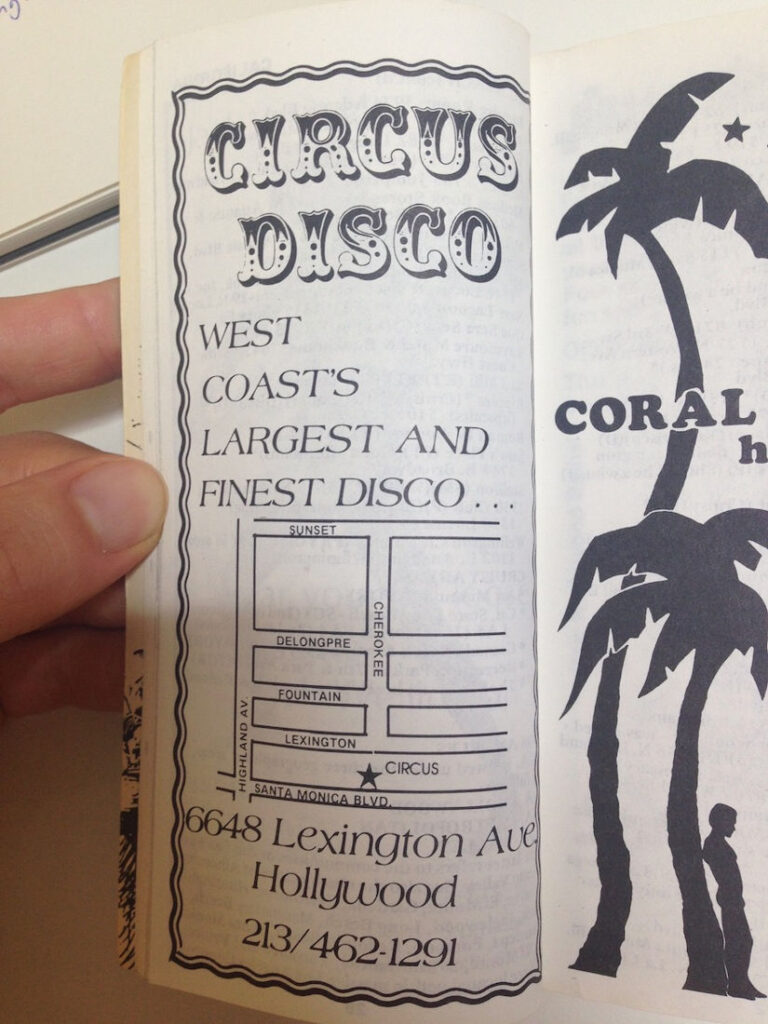
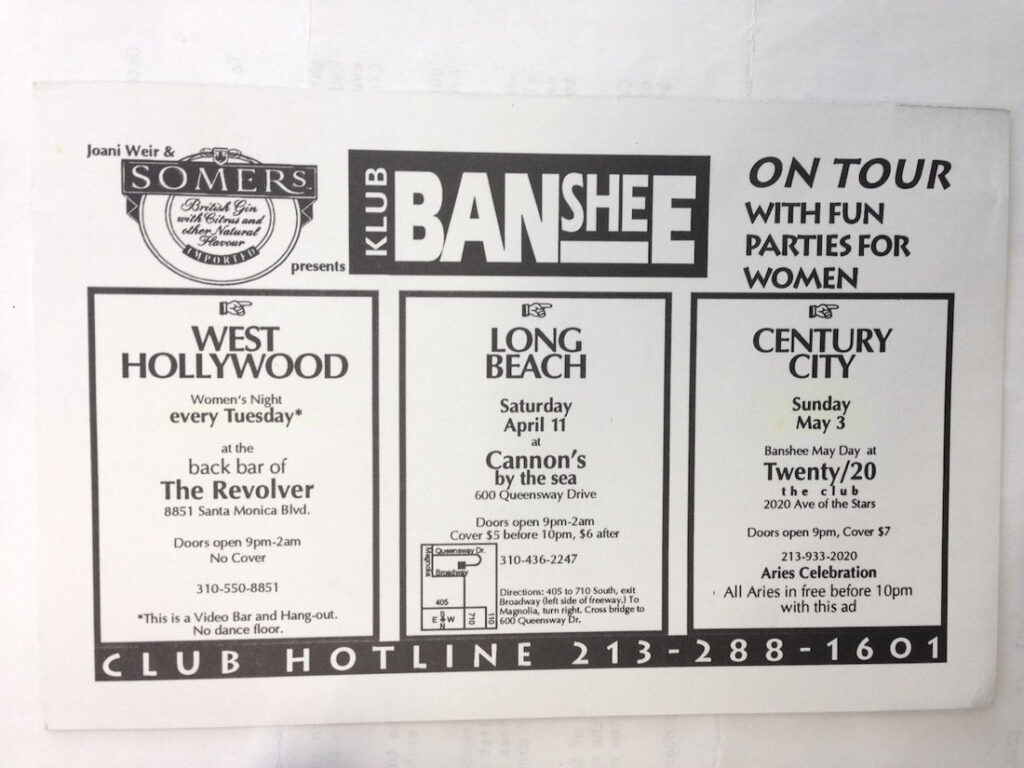
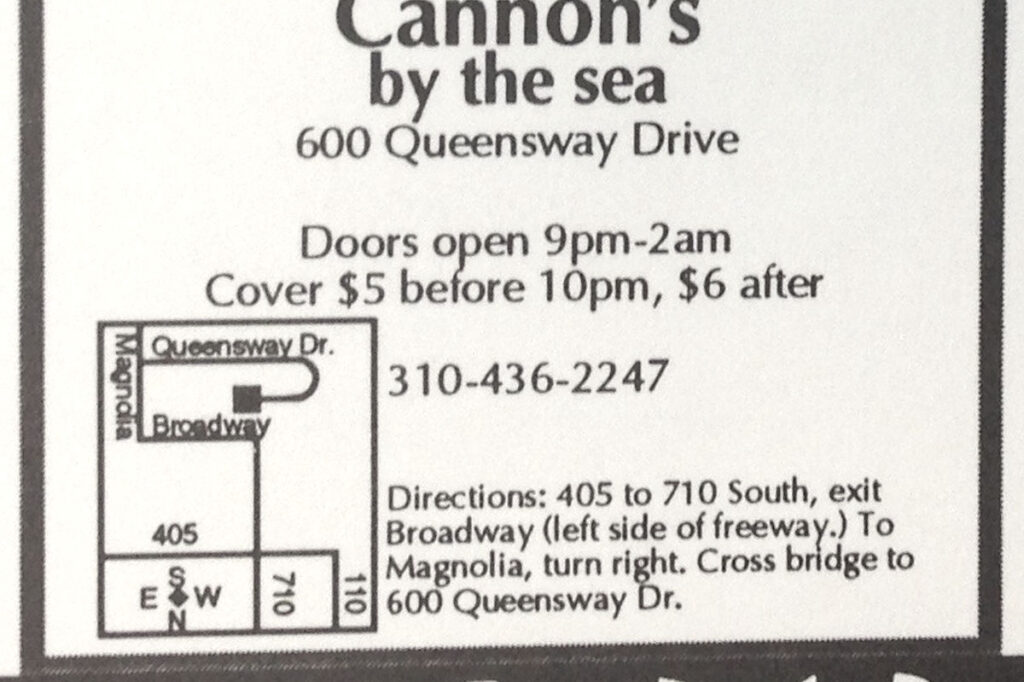
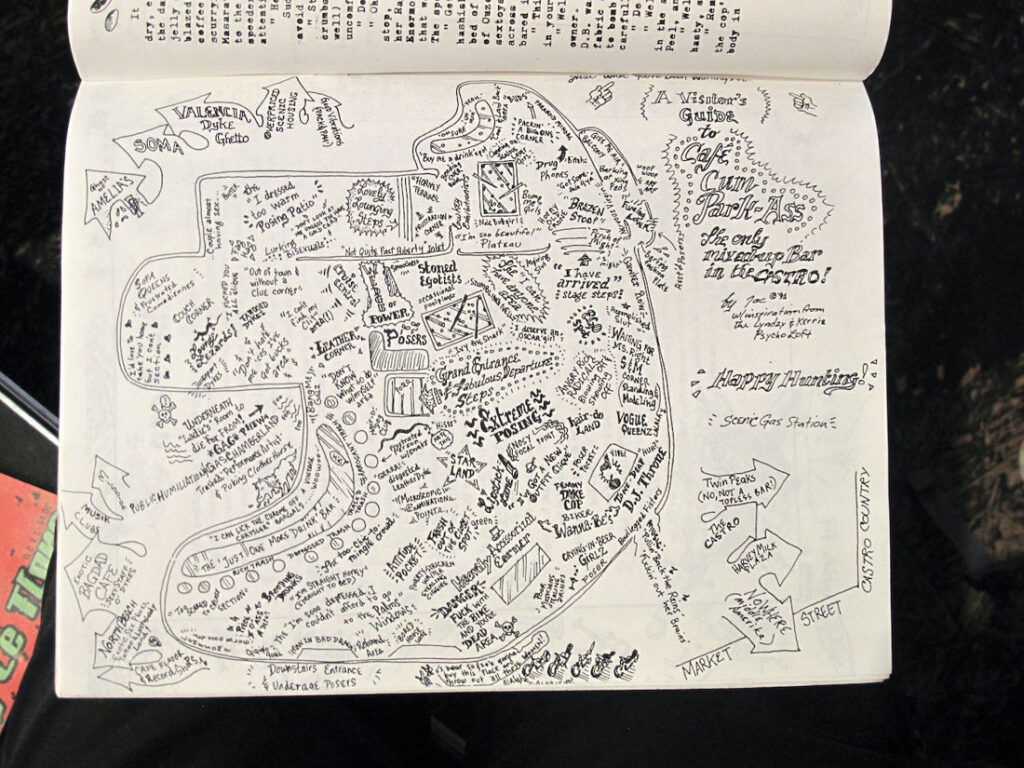
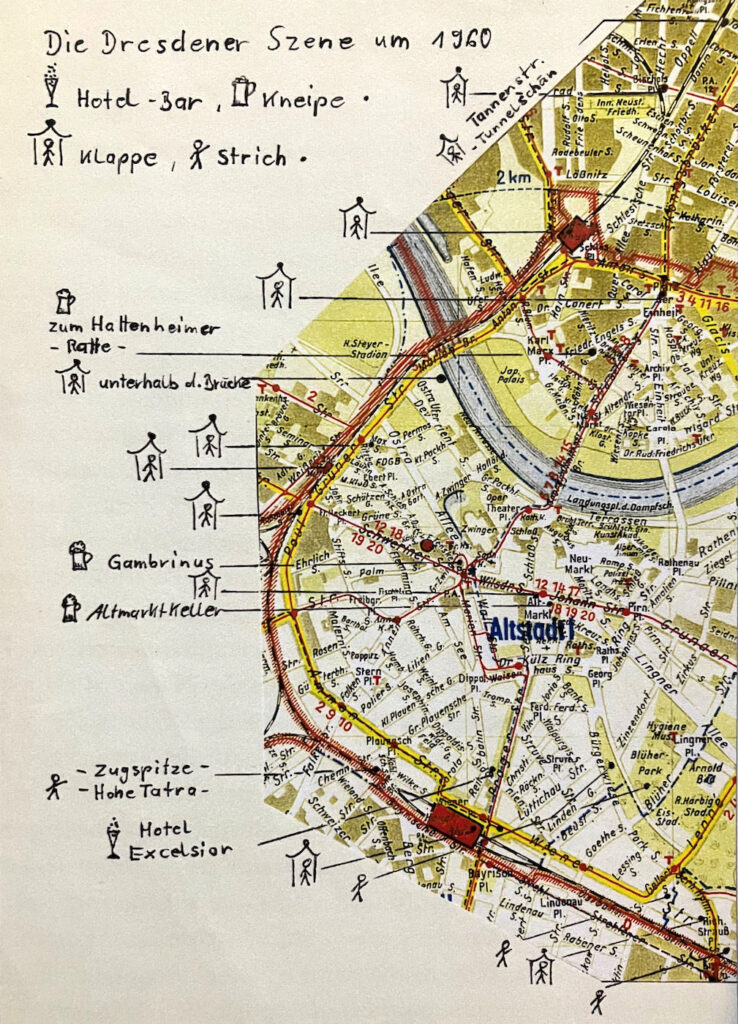
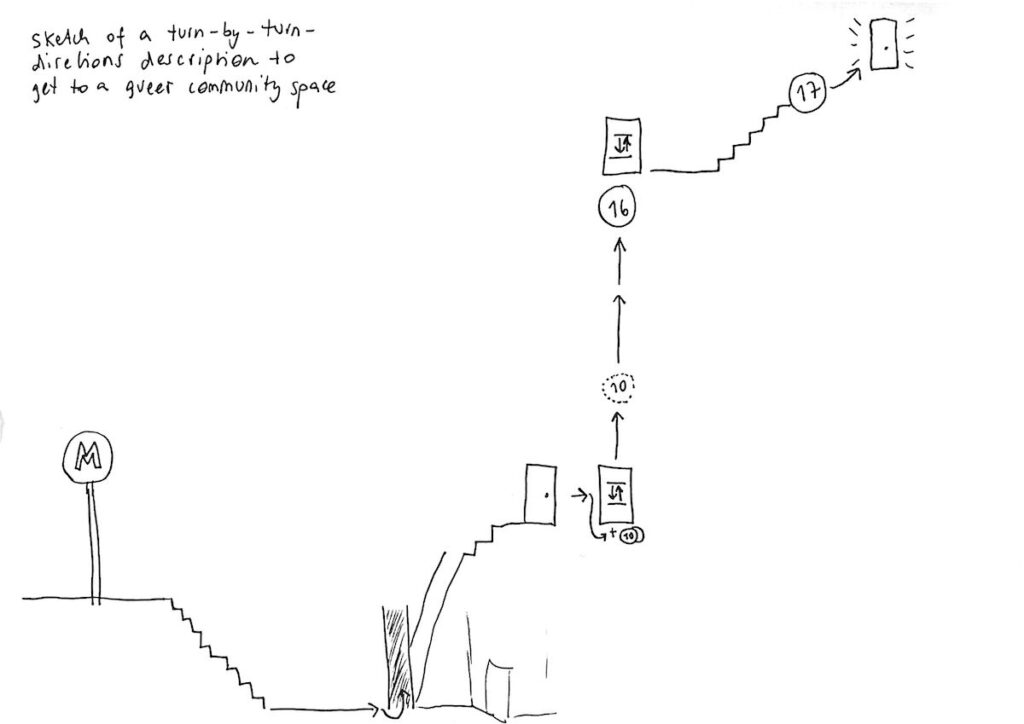
#1093 Center of Connections
| Alternative Titles: | Xenter of Connextion, center of attention, limelight, Herzstück, bonfire |
| Place: | Barnsdale Park, Los Angeles/USA, part of “Funeral for a lesbian bar” event by “die Blaue Distanz” |
| Year: | 2018 |
| Related People: | Angela Brinskele (community photographer), Nora Beckman (photographer / event space host), Marna Deitsch (retired bar tender in lesbian bars) |
| Related Stories: | The participants of the “Funeral for a lesbian bar” event, at a certain point of the evening, left the indoor event space “Cities of Days”, to go for a short protest walk in the streets with their formerly self made flags and signs. The walk led them up Barnsdale Park hill, from where you have a wonderful night view over the city. They gathered at a wide patch of grass and arranged the flag poles and some additional light chains as a center of a big gathering circle. The center piece almost evoked the picture and magic of a bonfire. The invitation for the event already asked people to bring one thing that “shouldn’t be missed in a community space”. So everyone started sharing their brought ‘gifts’, purred warm tea, passed around objects or shared stories. The ‘bonfire of protest flags’ – enlightened but not set on fire – combined the well-known coziness of a fireplace gathering with centering everyones values and desires, demands and expressions, manifested on the individually created flags. The shared matters reached from back-in-the-days stories, current struggles and emotional support, towards finding new fellows for collective activities and projects. |
| Materiality Scale: | 5–10 |
| Original Appearance: | a variety of fabric flags with wooden poles, two light chains, an amazing group of people |
| Glossarial Appearance: | documentary photos, descriptive text, original flags (only offline!) |
| Tags: | gathering, pole, center, temporary, joy |
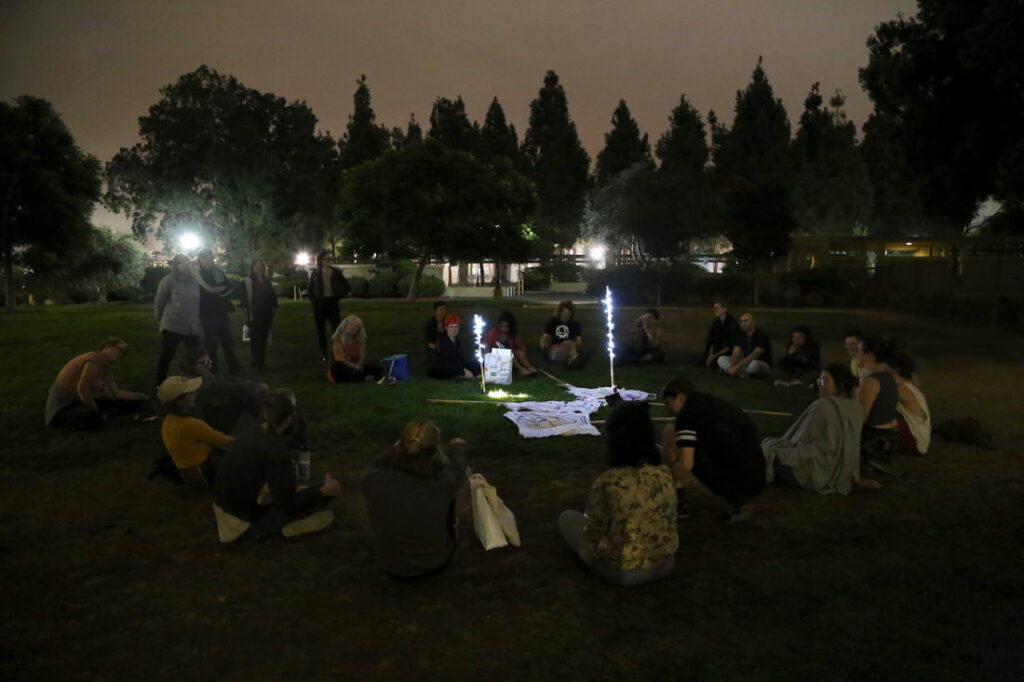
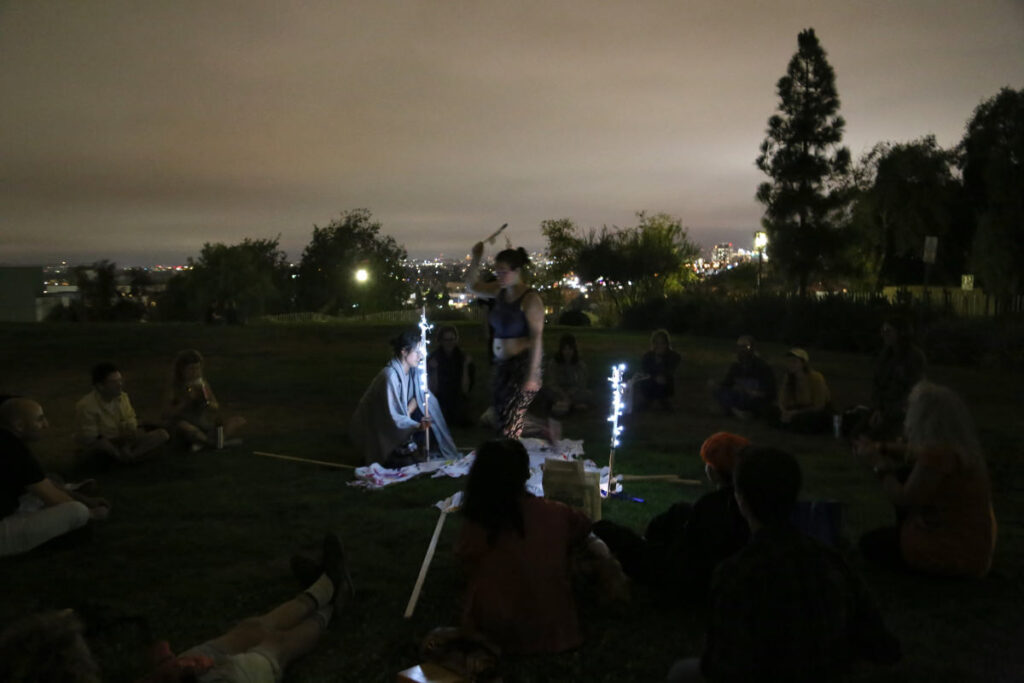
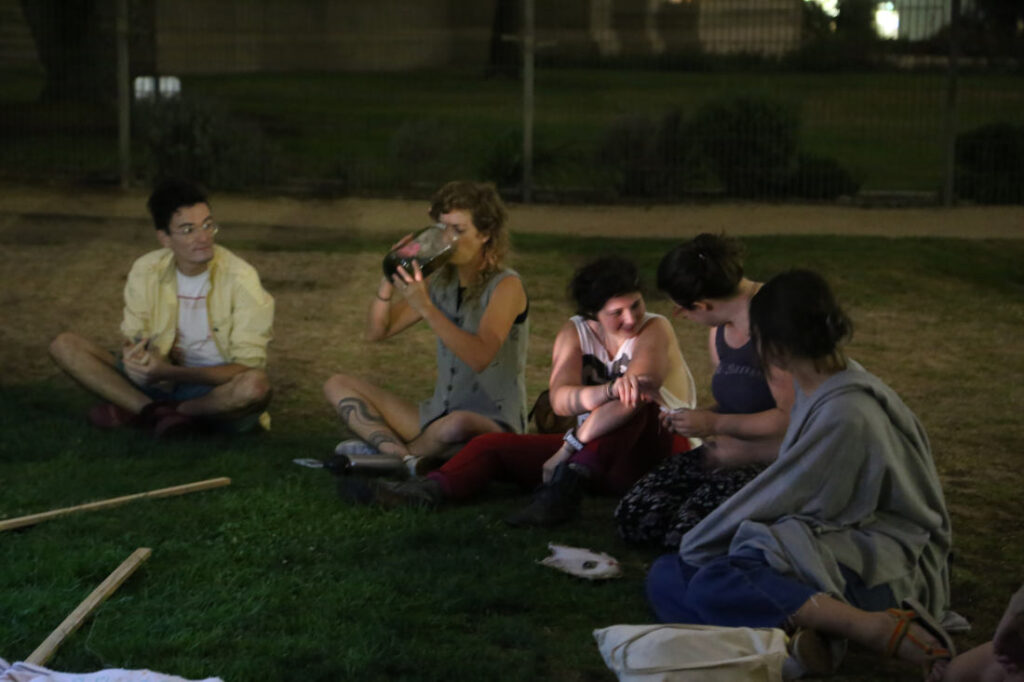
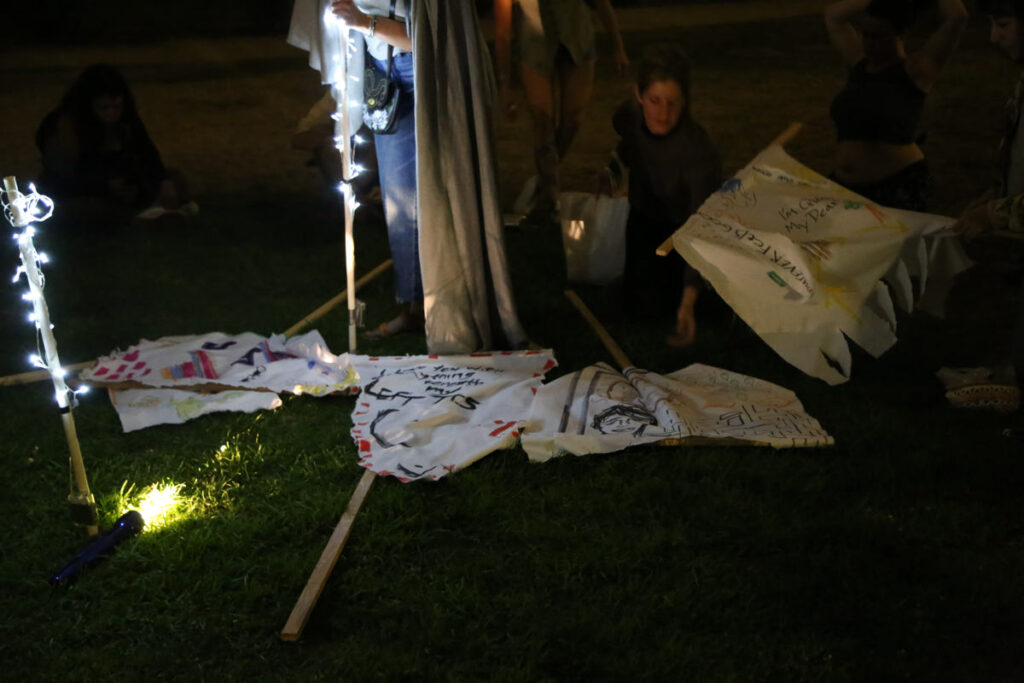
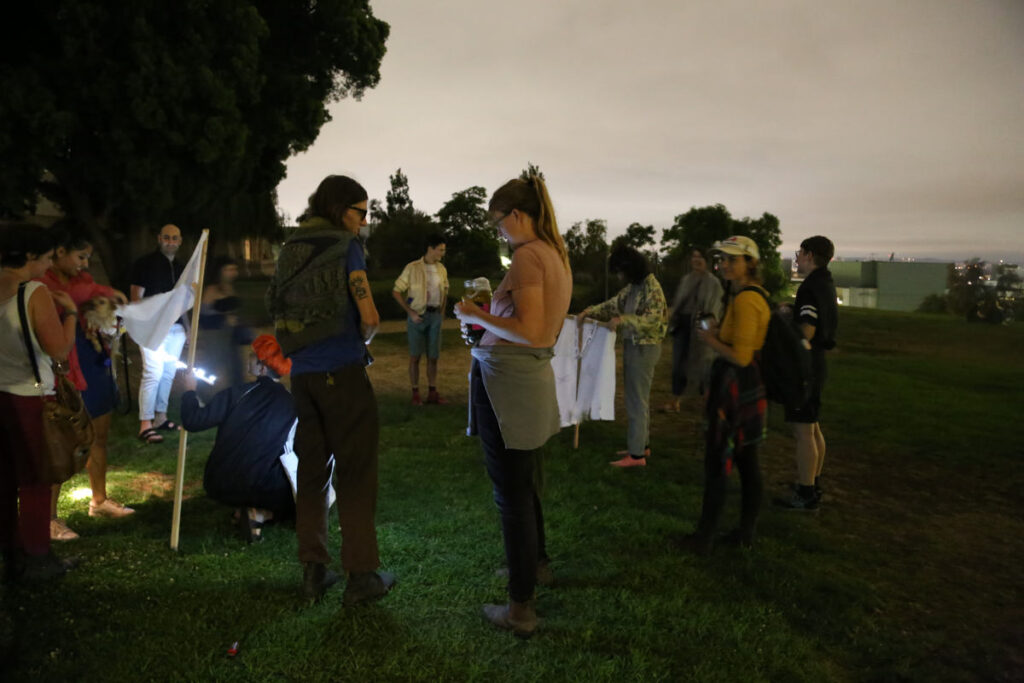
#0214 The Backroom
| Alternative Titles: | the hidden room, Hinterzimmer, backstage |
| Place: | diverse |
| Year: | diverse |
| Related People: | tba. |
| Related Stories: | 1. Backroom Stories from the Lesbian and Queer Bars in LA (coming soon!)
2. Ambavi Bar in Tbilisi/Georgia holds a very special interior architectural feature, a certain kind of backroom. A high wall next to the bar is fully covered with wooden doors with luxurious window parts. The windows are colorfully enlightened from the back. This entire wall of doors is lifted approx. one meter above the floor. At one segment the bare wall behind the doors opens up a low tunnel kind of passage. To move through one needs to duck their head and pass these 1,5 meters to reach the room behind it. It inevitably comes with a good surprise how one enters and perceives the second, or so to say, the back room. Separated additionally with plastic curtains, one will find not just the smokers lounge here, but a totally different vibe, different music, decoration, cozy sitting arrangements and even a small balcony. Considering some other specific aspects of this place, like the entrance door that you will only pass after ringing the bell, this queer friendly bar space can give you an extra portion of feeling safe, like, no one will accidentally find you there. |
| Materiality Scale: | 10 |
| Original Appearance: | diverse |
| Glossarial Appearance: | repros of archive sources, digital files, descriptive texts, interview recordings |
| Tags: | hidden, dating, way in |
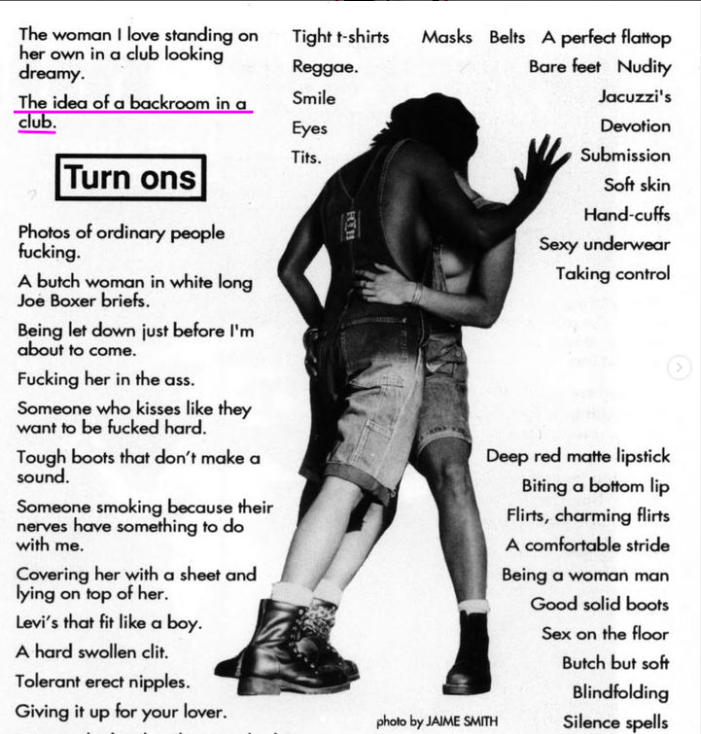
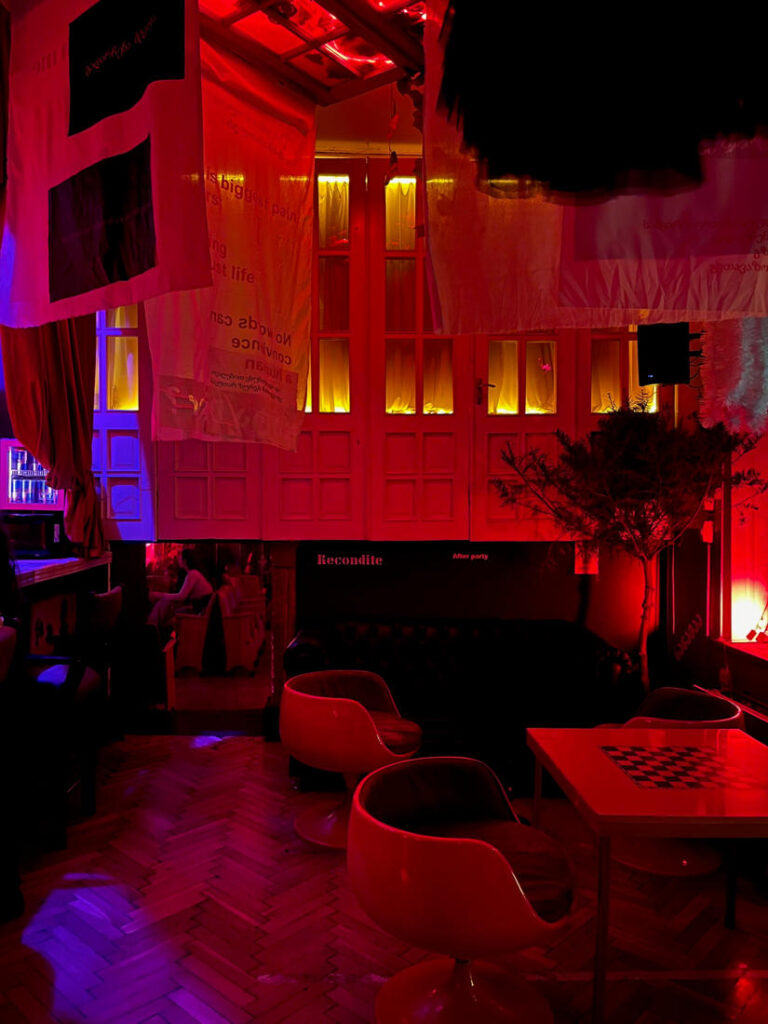
die Blaue Distanz (the blue distance) are Adam Erdmann (pronouns: they/them) and Franzi Goralski (no pronouns).
They are working together as an artist duo since 2016. Their artistic collaboration focuses on queer ways of living and learning, the potential of low-hierarchy spaces and the visibility of underrepresented decisions. Their concept and reasearch based approaches result in visionary “Space Designs”, scripted rituals, printed goods and interaction provocing settings.
Adam studied Communication Design at Folkwang University Essen/Germany (2006-2010). Franzi and Adam studied Fine Arts at HfBK Dresden/Germany (2011-2017) and the temporary Masters program ”The Commoners’ Society” at Sandberg Instituut in Amsterdam/Netherlands (2018-2020)
- Field Recordings- Liza Prins
- Break Down, Or: Dismantling the House that Narrative Built – Moosje Moti Goosen
- notes towards an otherwise – gervaise alexis savvias
- A Young Cowboy First Saw the Lights: Part 1 – Philip Coyne
- Open Glossary for Queer (immaterial) Architectures – die Blaue Distanz
- BLACK HOLES MATTER! – Yangamini
- Queer and Anti-Colonial Gardening: A Syllabus – M. Ty
- Plot(ting): Practices of Ambiguity — Patricia de Vries
- Cartas de Agua – Francisca Khamis & Maia Gattás
- “Raised on Foundations of Slime” – Amelia Groom